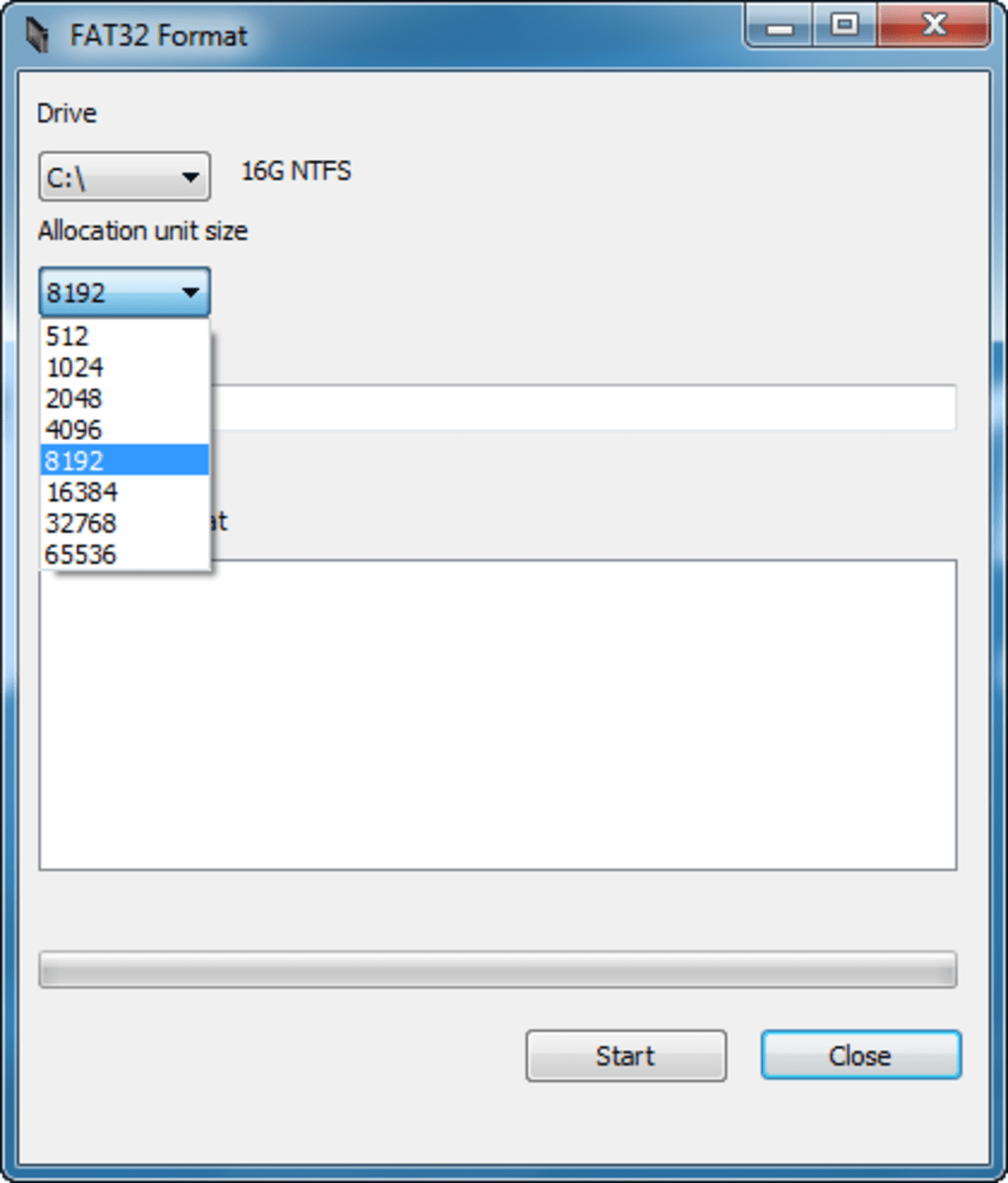Looking for a way to format a FAT32 filesystem hard drive to something larger than the maximum support size of 32GB? That's exactly what Fat32 Formatter does. This program effectively walks around the current Windows restriction of hard drive size and allows you to make almost any size you want.
Install and run the free WD FAT32 formatting tool AOMEI Partition Assistant Standard on your Windows 7. Right click the WD external drive and select Format Partition. In the prompt page, specify partition information. This is the place where you select FAT32 File System, edit Partition Label, and choose Cluster Size. Please follow this procedure to format a large drive greater than 32GB with a FAT32 file system using Seagate DiscWizard: Reformatting the drive will erase all data on the drive, so you should copy any data you want off the drive prior to formatting.
It is currently supported on Windows 2000, Windows XP and Windows Vista 32-bit. It is not supported on Windows 7.
The interface of Fat32 Formatter is very simple to use and you can run it as a stand-alone program. Updating this software is as easy as can be, and you can do so easily under the 'Version Info' tab.
As a stand-alone program, you can run this on any PC with a simple thumbdrive and no modifications will be made to your system registry.

Fat32 Formatter 1.1 on 32-bit and 64-bit PCs
This download is licensed as freeware for the Windows (32-bit and 64-bit) operating system on a laptop or desktop PC from hard drive formatters without restrictions. Fat32 Formatter 1.1 is available to all software users as a free download for Windows.
Filed under:- FAT32 Formatter Download
- Freeware Hard Drive Formatters
Windows 10 has default tools to format a partition to FAT32 from NTFS or other file systems, but most of time users just don’t want to format and delete anything on the original system, if there’s a way to convert one file system to another without data loss, that’ll be great, since time spend on backing things up and restoring them afterwards are saved.

(As for the FAT32 file system limiations, we cannot create a FAT32 partition larger than 32GB, but we can use PowerShell to format large volume (64GB, e.g.) to FAT32 ).
Methods of formatting partition to FAT32
Fat32 Format Tool Online
Disk management or command prompt or third-party partition manager software is able to format file system to FAT32, which is the file system most of the external hard drive, USB flash drive for game console (PS3, PS4, XBOX) would prefer.
- Right-click menu’s Format option in File Explorer
- Disk Management format option
- The ‘format’ command in diskpart.exe.

All of three methods perform alike and result in the same, delete previous data stored and create a file system, which is fine and quick when there’s no importance of data, but when the partition size is very large and data stored on it is too import to delete, format, under this circumstance, is not the best option.
Convert to FAT32 without data loss
Don’t format the partition, convert it instead.
Here’s how to convert a partition to FAT32:
- Run Partition Expert
- Click on the partition you want to convert
- Click <kbd>Convert to FAT32</kbd> and click OK when prompted
An alternative way of doing this is to use the Freeware NTFS to FAT32 Converter, steps are the same:
This Freeware is also lightweight, portable, 32-bit and 64-bit capable, supports Windows 10, and lower system to Windows XP.
Fat32 Format Tool Gui
Conventional ways of formatting File System
Besides the converting way, here’s the conventional way of formatting partition:
Fat32 Format Tool Android
- Windows File Explorer
- Press Windows + E to open file explorer and right-click on the partition, choose Format
- Disk Management
- Press Win+R and type:
diskmgmt.mscto open it and right-click on the partition to Format - Diskpart command
- Win+R and type: diskpart, click Yes to the UAC dialog and type:
list disk > select disk # > format fs=fat32 quick
Fat32 Format Tool
Note: Before formatting partition please make sure all the important data has a backup and it’s better to keep the ‘Quick format’ checked when formatting.